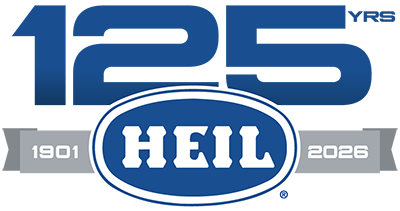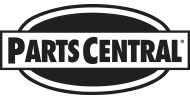Waste Today Highlights Trident Waste & Recycling’s Success with Heil, 3rd Eye, and Soft-Pak
This article originally appeared in Waste Today Magazine on September 24, 2025. Shared here courtesy of Waste Today Magazine.
Charleston, South Carolina, is growing rapidly, and its waste needs are growing along with it. At Trident Waste & Recycling, North Charleston, South Carolina, that growth has presented both a challenge and an opportunity for the company.
Trident began with just five trucks. Today, it operates more than 60 refuse vehicles, along with roll-offs, grapple trucks and smaller pickups. Trident serves thousands of customers, with a heavy emphasis on residential routes, including back-door collection where crews walk long driveways to remove and return containers.
That customer-first approach is demanding. Routes stretch into narrow alleyways, service disputes are common and safety is always a concern. But Trident has built a reputation for reliability by pairing best-in-class equipment with advanced technology, creating a fleet that is not only bigger but also smarter.
A growing company in a growing market
Trident’s growth has mirrored Charleston’s. With thousands of customers under contract, efficiency and accountability have become critical for the company.
Operations Manager Logan Bland has overseen much of that expansion. He understands the challenge of balancing growth with the need for safety and service quality. “When you take on more homes, more routes [and] more crews, you have to be certain your systems can keep up,” he says. “For us, advanced technology has made that possible.”
Intelligent cameras as a game-changer
The turning point came when Trident began installing 3rd Eye intelligent camera systems across its fleet. The most valuable feature of the technology is what’s known as Service Verification, Bland says.
The system automatically captures high-definition images at each stop, documenting service. If a customer calls to report a missed pickup, the company can confirm instantly that service was performed. Just as important, the system documents when/why service could not be completed, such as containers blocked by a vehicle or a container was not set out.
“It stops arguments in their tracks,” Bland says. “Instead of sending a truck back out, we can pleasantly resolve the dispute immediately. Customers see the proof for themselves, and it shows them we take their service seriously. That confidence not only saves us time, money and fuel, it also builds trust.”
Service verification is equally valuable on front-load routes. Images show when a bin is blocked by a vehicle, and they also capture when a container is overfilled.
In the past, those situations often left the company without proof of whether a commercial container was serviced, and the cost of overages simply was absorbed. Now, with clear documentation, overages can be billed according to contract terms, ensuring fair charges and accountability.
Customers also value the proof of service. “They like knowing they have that backup if there’s ever a question,” Bland says.
Safety on the streets
While Service Verification saves money, the 3rd Eye Safety Suite is the benefit Bland values most.
Rear loaders, which handle much of the company’s back-door service, are equipped with cameras to document collections and provide visibility. Grapple trucks carry side cameras for blind spots. After experiencing a few backing accidents early on, Trident added Collision Warning Radar to its trucks.
“Now we consider it indispensable,” Bland says.
The ability to review video instantly has transformed incident response. In the case of a collision or damage claim, Bland can access footage within minutes. “Before I even leave the office, I know exactly what happened,” he says.
That capability is a sharp contrast to older systems, which sometimes required hours of waiting to retrieve footage. Now, Trident can provide video for police reports, insurance cases and customer complaints almost immediately.
The clarity of the video is another advantage. “These are the clearest images I’ve seen from any camera system,” Bland says. “That makes all the difference when you’re trying to understand exactly what happened.”
Shifting driver attitudes
When cameras were first introduced, not all drivers welcomed the change. Some worried they were being watched. Trident addressed the concern head-on.
“We tell them from day one, this is not about spying,” Bland says. “It’s for your protection, for the company’s protection and for safety.”
Over time, that message stuck. Today, drivers see the cameras as a shield, not a spotlight.
“They know if there’s a dispute, the video shows they did their job,” Bland explains. “It takes the pressure off.”
The hiring process now includes a conversation about technology. Instead of resistance, most new employees accept it as part of the job, and most appreciate it.
“The culture has shifted,” Bland says. “Crews trust the system and rely on it.”
Technology integration beyond cameras
Cameras are just one part of Trident’s technology strategy. The company also relies on Soft-Pak routing and management software to keep its growing operation on track.
Residential routes are planned in the office, then reviewed monthly with a mapping tool that helps managers adjust on the fly. For front-end and roll-off trucks, drivers use in-cab tablets to manage daily service operations and allow for real-time communications simultaneously.
Together, these tools provide an end-to-end solution for routing, service verification, and accountability. Service photos captured by cameras are integrated into the backend system, creating a seamless record that streamlines billing for the customer service team.
The tablets also provide real-time location and other data. Bland says he hopes to add additional features, such as automated exception reporting, soon.
“It’s already powerful, and I love how the company is constantly working to make it even better,” he adds.
Equipment and partnerships
At the heart of Trident’s fleet are the front-loaders that handle much of its commercial work. For that equipment, the company relies on a single manufacturer.
“For us, Heil is the only front-loader we trust,” Bland says. “Because the equipment and technology are developed within the same company family, our trucks are ready to be seamlessly outfitted with the latest safety and camera systems right from the start.”
Both Heil and 3rd Eye are part of Chattanooga, Tennessee-based Environmental Solutions, a Terex company.
Bland adds, “Having a full suite of integrated solutions from a single company makes life so much simpler. In the past, we had to rely on multiple products and systems from different providers, which was far more costly and complicated.”
The partnership has given Trident confidence in both durability and innovation. “When new features are available, we adopt them right away,” he says.
That willingness to invest early has helped the company stand out in a competitive market. Bland says other haulers often view Trident as a technology leader in the region.
Staying ahead of the curve
Looking forward, Trident plans to expand its use of advanced camera systems and safety technology.
A trial of the 3rd Eye 360 birds-eye view camera systems is underway on downtown routes, where narrow streets, alleyways, and heavy pedestrian traffic make visibility critical.
“A lot of accidents happen when backing up,” Bland explains. “Being able to see if an object is nearby is essential.”
He sees the technology as another step in building a safer, more efficient fleet. “As we continue to grow, we’ll keep investing in tools that protect our drivers, our customers, and the community.”
A competitive edge
Technology has done more than reduce disputes and improve safety. It also has become a competitive advantage.
Trident attained a municipal contract in part because it is able to provide proof of service. Customers and municipalities alike value accountability, and Trident can deliver it with confidence.
That same advantage helps retain accounts. Whether it’s a commercial customer with strict service requirements or a homeowner concerned about a missed pickup, the company can show exactly what happened.
“It builds trust,” Bland says. “And in this business, trust is everything.”
Growth via accountability
Trident Waste & Recycling has grown from a handful of trucks into a regional leader by combining reliable service with smart technology. Cameras, routing systems and durable equipment have given the company the tools to grow without losing focus on safety and accountability.
For Bland, the lesson is clear: Success comes from providing drivers with the support they need, customers the proof they demand and the community the safety it deserves.
“Everything we do is about protecting our people and serving our customers,” he says. “That’s what drives us every day.”
This article was submitted by Environmental Solutions, a Chattanooga, Tennessee-based provider of waste collection equipment and technology systems. More information is available at www.terexesg.com.

